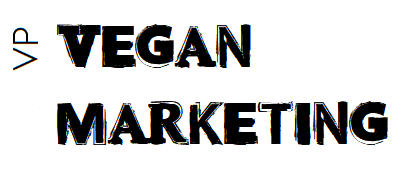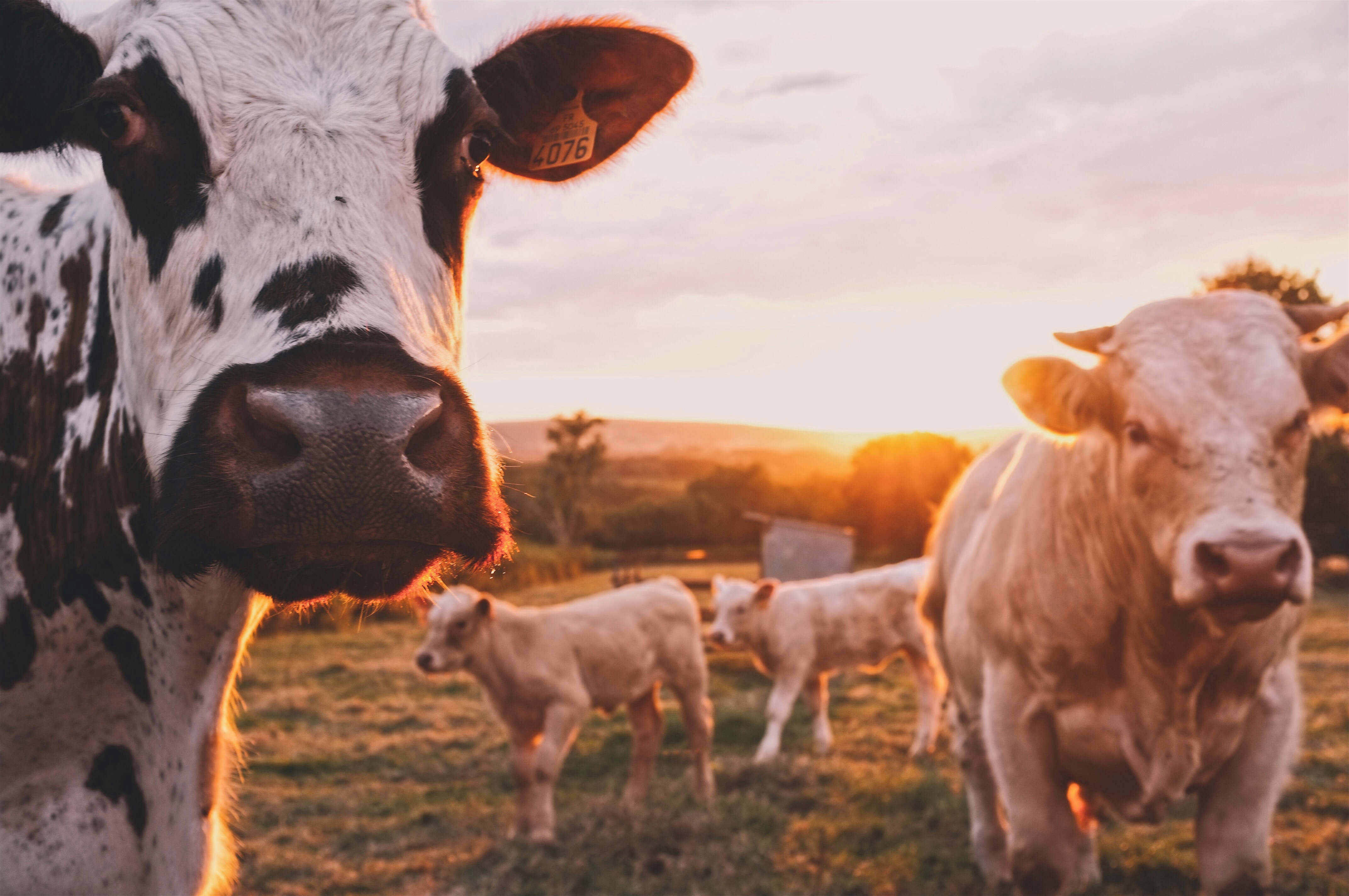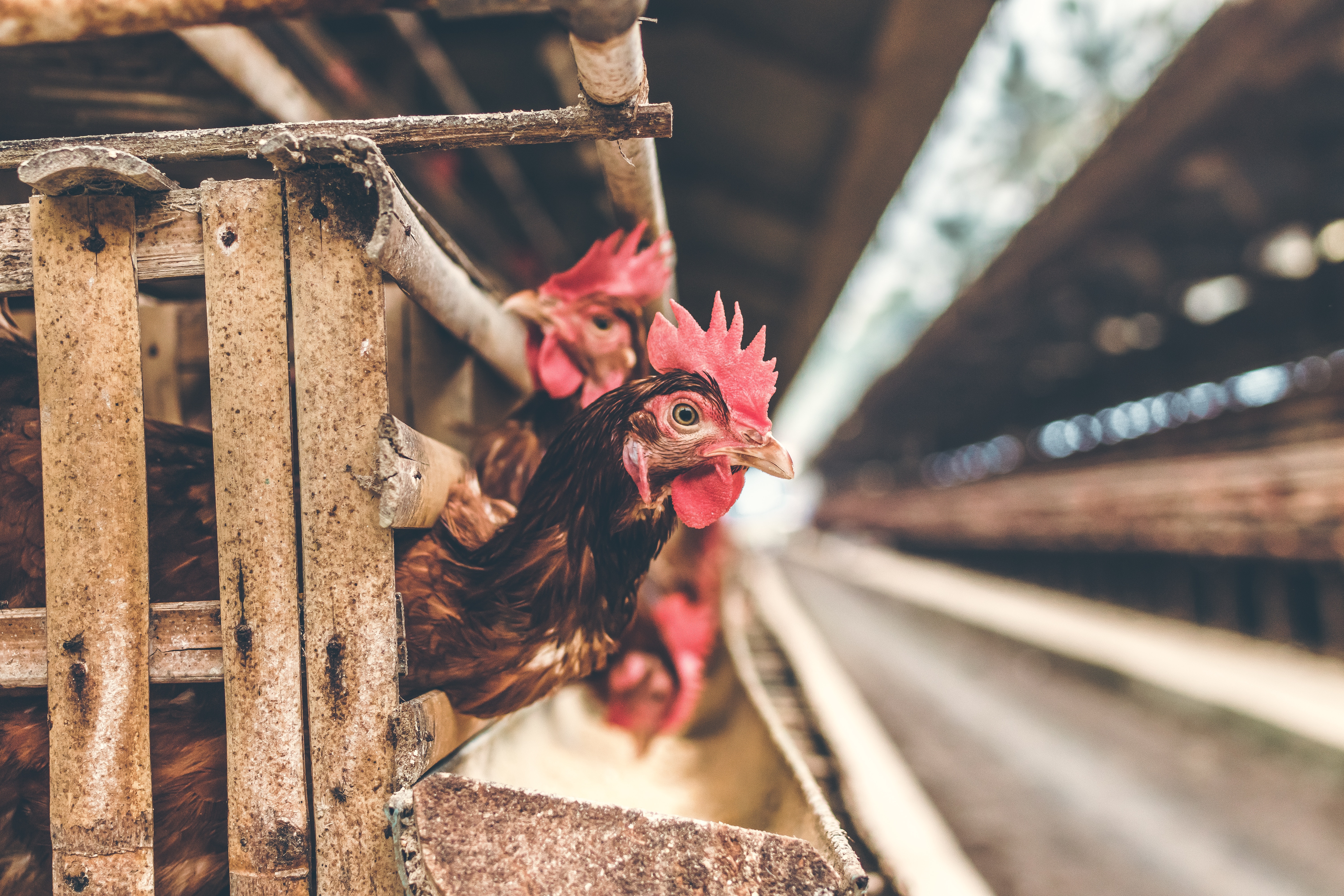As the public wake up to the cruelty of the dairy industry and the myth that milk, cheese and yogurt are essential for good health, the dairy industry is really starting to panic.
The defensive backlash began in February when the National Farmers Union reacted angrily to pro-vegan adverts that have been appearing across the country. The NFU slammed the ads as “misleading”, even though they carry entirely factual messages like “dairy takes babies from their mothers”.
After claiming that dairy farmers work hard to ensure their calves are “happy and healthy” – despite the fact that they are stolen from their grieving mothers soon after birth and often sent straight to slaughter – NFU dairy board chairman Michael Oakes cites the Red Tractor kite mark as evidence that farmers adhere to high animal welfare standards.
A quick glance at the Red Tractor website reveals the truth behind the ‘high animal welfare standards’ of the British animal farming industry. One of the methods recommended by Red Tractor for ‘euthanising’ unwanted newborn lambs is to “Hold the animal by the back legs and swing it through an arc to hit the back of its head with considerable force against a solid object, e.g. a brick wall or metal stanchion.”
At the same time as the dairy industry is coming under unprecedented pressure, at least two high profile pro-dairy health studies have been published and publicised widely in the media.
In April the National Osteoporosis Society warned that diets which cut out dairy could be a “ticking time bomb” for young people’s bone health, a claim made after the Society carried out a survey which found that a fifth of under-25s have either cut down on or completely given up dairy. The alarming warning was reported by multiple news sites, for example by the BBC in an article headlined ‘Dairy-free diets warning over risk to bone health’.
What the scaremongering pro-dairy media reports failed to mention is that the National Osteoporosis Society is funded by a dairy company. The charity is partnered with dairy multinational Yoplait and, as stated on the Asda website, the company “donates annually to the National Osteoporosis Society in the UK and Irish Osteoporosis in Ireland”.
This month the results of another study into dairy consumption and health have been published and widely publicised. The Guardian reports that ‘Eating cheese does not raise risk of heart attack or stroke, study finds’, and details the findings of research carried out by “an international team of experts” which “challenges the widely held belief that dairy products can damage health”.
One of the study’s researchers, professor Ian Givens from Reading University, said: “There’s quite a widespread but mistaken belief among the public that dairy products in general can be bad for you, but that’s a misconception. While it is a widely held belief, our research shows that that’s wrong.” Givens goes on to discuss the perils posed by not consuming dairy, particularly to young people – including an alarming warning that the children of pregnant women might develop neuro-developmental difficulties, which could “affect their cognitive abilities and stunt their growth”.
What The Guardian does not mention is that the study was funded by huge players in the dairy industry. A note labelled ‘Conflict of interest’ positioned at the end of the report, which is published on the University of Reading’s website, reveals that:
• the study was partly funded by an unrestricted grant from the Global Dairy Platform, Dairy Research Institute and Dairy Australia
• an author of the study received the Wiebe Visser International Dairy Nutrition Prize from the Dutch Dairy Association’s (NZO) Utrecht Group
• another author of the study is recipient of research grants from Arla Foods, DK; Danish Dairy Research Foundation; Global Dairy Platform; Danish Agriculture and Food Council; GEIE European Milk Forum, France
Again we see powerful dairy interests funding researchers whose findings promote the idea that dairy consumption is essential for human health.
As dairy sales continue to decline, we can expect to see more pro-dairy studies like this. Follow the money, however, and it will usually lead straight back to the very companies who are making huge profits from dairy.
A conflict of interest indeed.





When has this text been published? Can`t find the date.
9 May 2017